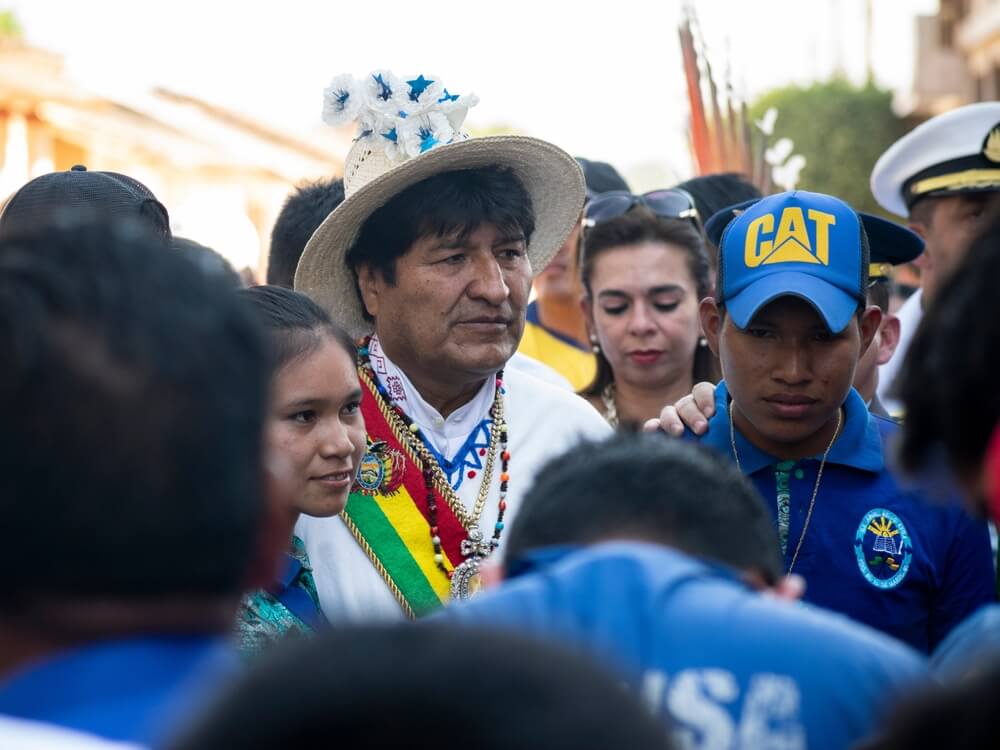A day after the left-wing party that has governed Bolivia for 20 years lost a first-round presidential vote, the race was on Monday to see who will succeed it.
Sen. Rodrigo Paz, a center-right lawmaker from a prominent political family who scored a surprise first-place finish Sunday, will face right-wing former president Jorge “Tuto” Quiroga in an Oct. 19 runoff.
Paz, who lagged in polls ahead of the vote, won 32% of the votes cast, while Quiroga received just over 26% and two candidates representing the governing Movement Toward Socialism party — known as MAS — each won less than 10%.
“This was no surprise. It may be a surprise for some sectors of power that did not want to face this reality,” Paz told The Associated Press after his win. “The vast majority of people have expressed a desire for renewal — merchants, the self-employed, transport workers, the great majority of this country.”
“It starts again from zero,” Quiroga said on Monday. “The clocks are reset for both tickets.”
The front-runner fires up his base
Paz's popular running mate Edman Lara, a former police captain who was dismissed after denouncing internal corruption, spent Monday firing up his base in areas that overwhelmingly supported his ticket.
Quiroga did not appear at public campaign events on Monday.
In El Alto, a a satellite city perched high up on frigid plains overlooking of Bolivia’s capital of La Paz, hundreds of people packed the streets outside a cable car station to see Lara deliver a speech.
Chants of “El Alto, never on its knees!” and “Lara, friend, El Alto is with you!” rang out in what was long a Movement Toward Socialism stronghold.
Lara kept to the same broad points of his stump speech on Monday, combining highlights from his personal story condemning corruption and working informal jobs with criticisms of both the left- and right-wing establishments.
The traitors are not going to return to power - Edman Lara
“The MAS members are not going to return to power, the traitors are not going to return to power,” he told supporters and journalists at Friday’s rally, drawing whoops and cheers from the jostling crowds. “We are going to give a signal that we do not want the old political caste of the left and the right anymore, we are tired of the same old people.”
“Samuel and Tuto ran their campaigns with millions; we ran ours with faith and with the people. And we did it,” Lara said.
His message resonated with supporters who are broadly cynical about politics.
“Lara is new. He’s not a politician who’s lived off politics his whole life,” said Luis Carvajal, a 47-year-old pastry shop owner who said he quit his job as a lawyer when he saw how bribes swayed judicial outcomes.
“In Bolivia, justice is bought. That’s why Lara’s message about corruption is very important. Bolivia needs policies against corruption now.”
Former supporters have soured on left-wing rule
Sunday’s election results signaled the end of an era for Bolivia’s MAS party, which has governed almost uninterrupted since charismatic ex-President Evo Morales rose to power as part of the “pink tide” of leaders who swept into office across Latin America during the commodities boom of the early 2000s.
El Alto, a largely ethnic Aymara city, helped vault Morales, the founder of MAS, to the presidency in 2006 as the nation’s first Indigenous president.
 Evo Morales' party has imploded due to infighting and his economic model has gone bust
Evo Morales' party has imploded due to infighting and his economic model has gone bust
For years, residents here cheered Morales’ nationalization of gas reserves and benefited from his generous food and energy subsidies as a commodities boom generated a natural gas windfall for Bolivia.
But his party has imploded due to infighting and his economic model has gone bust.
Many in El Alto soured on the MAS party’s heavy state intervention and grew impatient with Morales' attempts to prolong his presidency.
Lara’s ethic of self-reliance and Paz’s promotion of what he calls “capitalism for all” has stirred up excitement in this sprawling city as Bolivia undergoes its worst economic crisis in almost four decades.
Bolivia's annual inflation rate has soared from 2% less than two years ago to 25% as of last month. A scarcity of fuel has paralyzed the country. A shortage of U.S. dollars needed to pay for essential imports like wheat has crippled the economy.
“We’re done with the MAS,” said Paz-Lara supporter Elisa Belecoña Calarara, 37. “It’s led us into decay and now we’re poor because of it.”
Whether Paz or Quiroga wins, Bolivia now faces a return to belt-tightening.
The main question is whether the fiscal adjustment involves harsh austerity and a bailout from the International Monetary Fund, as Quiroga pledges, or cuts to state spending, hiring freezes and tax amnesties, as Paz advocates.